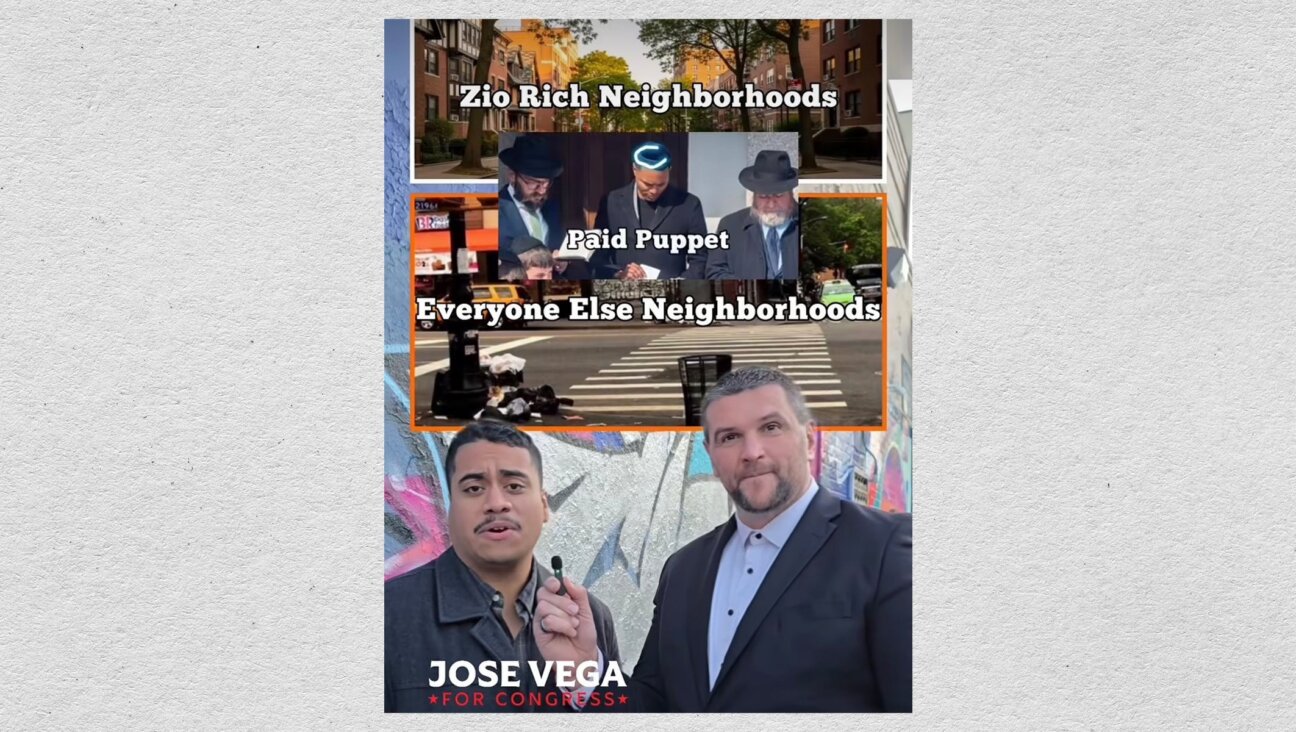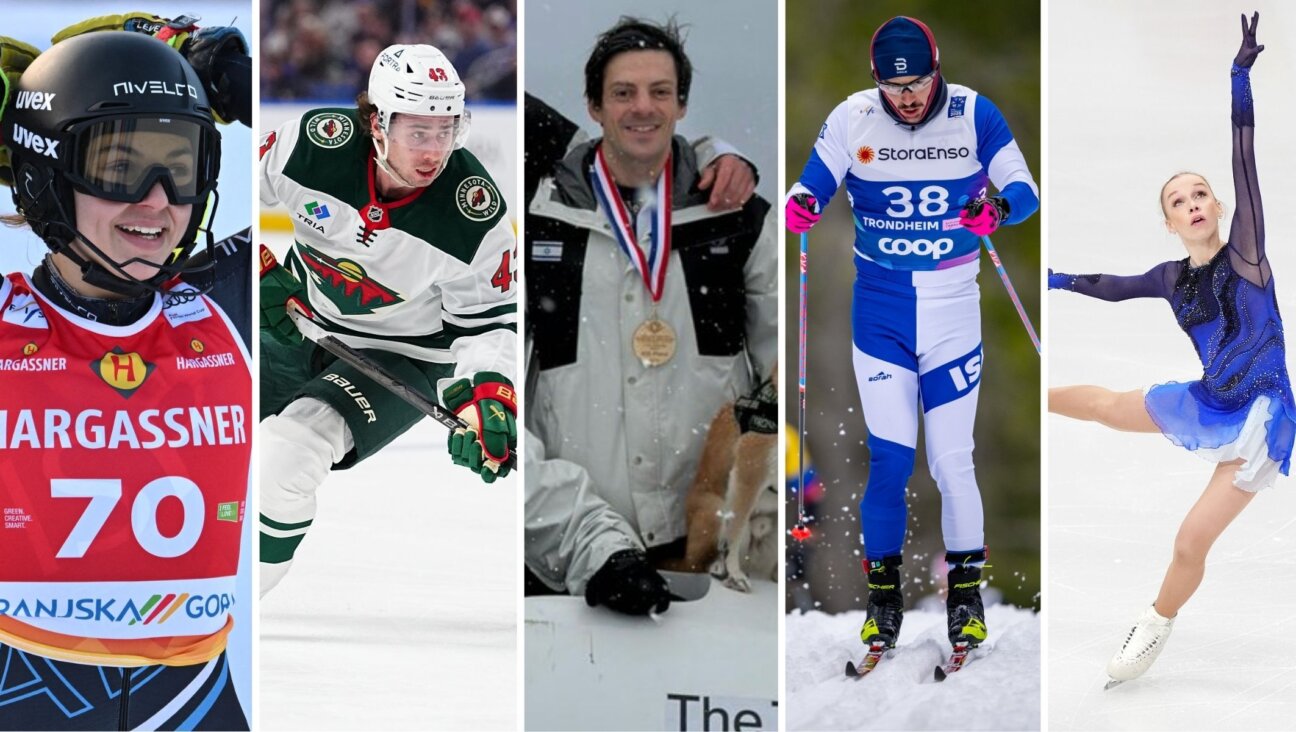Ukraine Honors Nationalist Whose Troops Butchered Jews

Graphic by Angelie Zaslavsky
(JTA) — Amid a divisive debate in Ukraine on state honors for nationalists viewed as responsible for anti-Semitic pogroms, the country observed the first minute of silence in memory of Symon Petliura — a 1920s statesman blamed for the murder of 50,000 Jewish compatriots.
The minute was observed on May 25, the 90th anniversary of Petliura’s assassination in Paris. National television channels interrupted their programs and broadcast the image of a burning candle for 60 seconds, Ukraine’s
A French court acquitted Sholom Schwartzbard, a Russia-born Jew, of the murder even though he admitted to it after the court found that Petliura had been involved in or knew of pogroms by members of his militia fighting for Ukrainian independence from Russia in the years 1917-1921. Fifteen of Schwartzbard’s relatives perished in the pogroms.
Separately, the director of Ukraine’s Institute of National Remembrance, Vladimir Vyatrovich, said in a statement on Monday that Kiev will soon receive a street named after two other Ukrainian nationalists who are widely believed to bear responsible for lethal violence against Jews: Stepan Bandera and Roman Shukhevych. Another street is to be named for Janusz Korczak, the pen name of Henryk Goldszmit, a Polish Jewish teacher who was murdered in Auschwitz.
Both Bandera and Shukhevych collaborated with Nazi forces that occupied what is now Ukraine and are believed to have commanded troops that killed thousands of Jews. Once regarded by Ukrainian authorities as illegitimate to serve as national role models because of their war crimes against Jews and Poles, Petliura, Bandera and Shukhevych are now openly honored in Ukraine following a revolution spearheaded by nationalists in 2014.
Eduard Dolinsky, director of the Ukrainian Jewish Committee, condemned the plan to name streets after Bandera and Shukhevych. “My countrymen should know that Bandera and Shukhevych considered me and all of the Ukrainian Jews – children, women, the elderly — enemies of Ukrainians,” he wrote on Facebook.
In the 2014 upheaval, street protesters brought down the government of former president Viktor Yanukovych, whom critics perceived as a corrupt Russian stooge. The revolution unleashed a wave of nationalist sentiment and with it naming of streets and memorial events for the three men and their peers across Ukraine, where they are honored for fighting Russian domination.
The issue is divisive among Jews and non-Jews in Ukraine, where 40 percent of the population are Ethnic Russians, and where thousands have died since Russian-backed separatists sparked a conflict in 2014 between Ukraine and Russia.
Efraim Zuroff, the Israel director of the Simon Wiesenthal Center, and some Ukrainian Jewish leaders have protested this trend, calling it a whitewashing of involvement in anti-Semitic murders by Ukrainians and Nazis.
But other Ukrainian Jewish leaders, including Josef Zissels, chairman the Vaad organization of Ukrainian Jews, argue that the preoccupation with this subject “leads to unnecessary assignment of blame that serves only retrospection but fails to offer a vision for the future” in a country where Jews enjoy equal rights and suffer fewer anti-Semitic assaults than in many other European states, Zissels told JTA last month.
During a debate on the subject last week in Kiev, Zissels said he doubted “that Jewish books describe what some Jews did to Ukrainians” the way they describe Ukrainian atrocities against Jews. In Ukraine, many believe Communist Jews bear a responsibility for Soviet oppression.
Dolinsky condemned Zissels’ statement, saying it creates a false moral equivalence and perpetuates anti-Semitic stereotypes. Soviet Jews, he argued on Facebook, oppressed Ukrainians not as Jews but as Soviets along with officials of various ethnicities, while Ukrainian nationalists murdered Jews while flying the Ukrainian nationalist banner.














